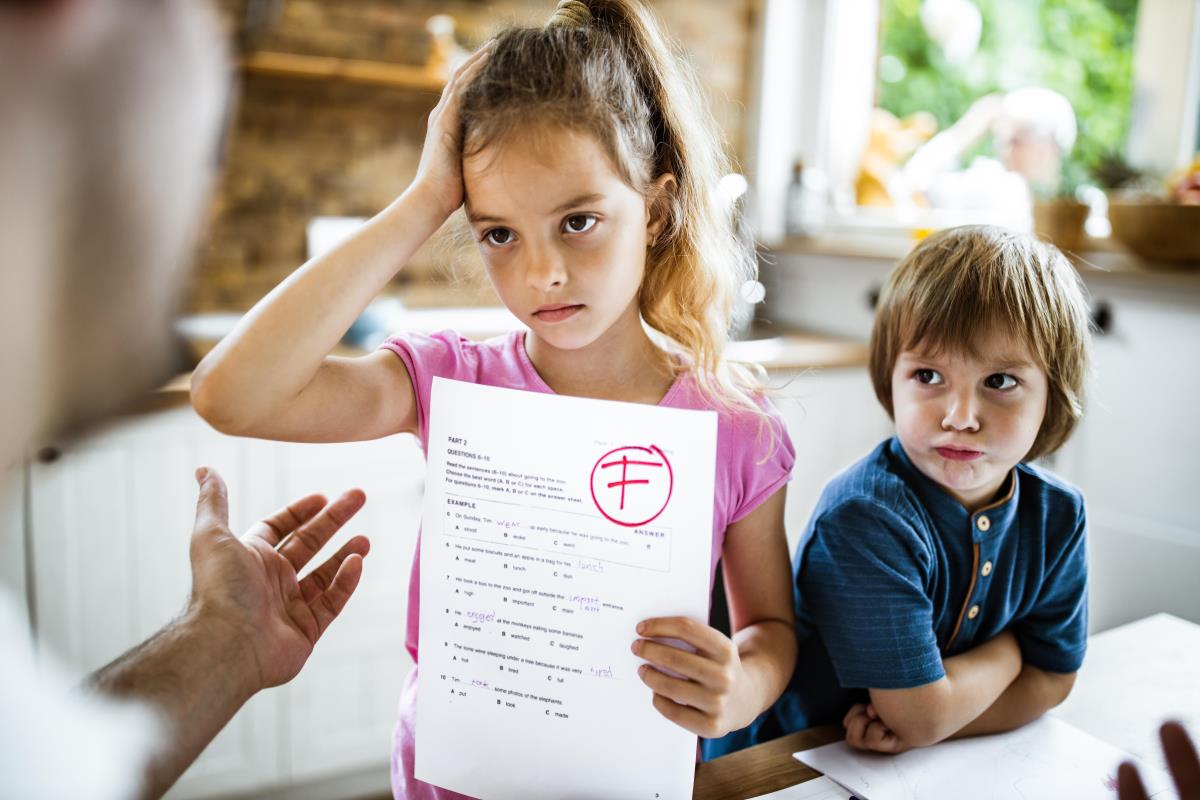7 Reasons Why It Can Be Important to Let Your Child Fail (Sometimes)
Seven reasons why it's important to let your children fail and some opportunities to turn failures into invaluable life lessons.
As acronyms go it may not be the catchiest, but the message is clear with FAIL = First Attempt In Learning; you've not failed, you're just learning. It's like the growth mindset concept: if you can't do something, it's not that you can't do it, it's just that you can't do it…yet.
As most adults already know, when learning to do almost anything, you will inevitably need to fail at it a few times before you get it, otherwise we'd all pop out of the womb fully competent.
In fact, failing is an important life lesson for not just adults, but children too. Learning the importance of failing can stand them (and you) in great stead as they'll learn it's a natural and normal part of the learning pattern.
Understanding and appreciating this can help develop their resilience so that at each hurdle (or failure) they don't give up but are energised into working out how they can get a better result at the next attempt.
As a parent, we understand that it can be so tempting to shield your child from failure. But here's why it's important to let them learn from mistakes.
- Coping skills are like muscles; we don't know how strong they truly are until we need to use them.
- Once you've failed and think you really can't do something, you can only get better and move onwards and upwards. After all, it can't get harder than an initial total flop.
- Dead ends can spur a change off course into the right direction. They will learn that by persevering with different ideas and approaches they might finally find the way to succeed.
- Many children who aren’t able to fail, or aren’t given the opportunity to fail, tend to be more fearful of failure and less willing to try new things because they don't know how they will handle it.
- You learn more from failing than from succeeding. That jump they didn't quite make or drawing they didn't know how to start will mean so much more than something that came easily.
- Failure can develops a sense of humility in children. If they've tried and failed at things, they will have empathy when they see others going through similar difficulty.
- Failure can make success more enjoyable. Something that's hard earned will be savoured and more appreciated, especially if they are rewarded for the effort and not just the result.
Opportunities for Children to Learn from Mistakes
- When your child asks for help: Try giving your child time for trial and error. From tying shoelaces to homework, you could respond with, "Let me see you try first and then I will help with the rest." Or offer to do it together. If your child is non-verbal, give words to their actions so they can start to learn the process.
- When your child asks for an answer: A common parental instinct is to share all your hard-earned wisdom, but in most cases it's best to support your children as they learn on their own. Start by asking them what they think or what they have tried. Then you'll know where you're starting from and how you can support them as they discover the answer. If they guess the wrong solution, support them as they experiment, make mistakes, and discover why they weren't right. You may not have time for this process every time, but it's invaluable when you do.
- When something goes wrong:Maybe they are fighting with a friend or doing something socially inappropriate. Instead of telling your child how to fix it or fixing it yourself, start by asking how they think they should fix it. Ask questions like, "How do you think your friend feels? Why do you think he feels that way? What can you do to change that? Why do you think lying is a problem? What might happen because of the lie? How can you solve the problem?" Guiding your child to reflect on the problem takes more time, but it can provide great opportunities for learning and skill-building. While children learn from mistakes, they can also develop the self-confidence, self-concept, and moral judgement that comes from doing something like apologising to a friend or neighbour and trying to right a wrong.
- When your child doesn't do as well as you expected: From a low grade to a game loss, life can be riddled with disappointments and failures. Instead of focusing on a fixed marker of success like a grade or a win, it's better to reflect together on what your child did, the effort they made, something specific they excelled in, and things they have learned. Their personal growth and achievement should be the focus of these conversations rather than the mistake or failure itself. Consider encouraging rather than heaping on praise to focus your child towards positive outcomes.
Providing opportunities to develop skills of resilience and coping within a safe, loving, and supportive environment are some of the best ways to prepare children for life's challenges.
---
Bright Horizons Content Team




